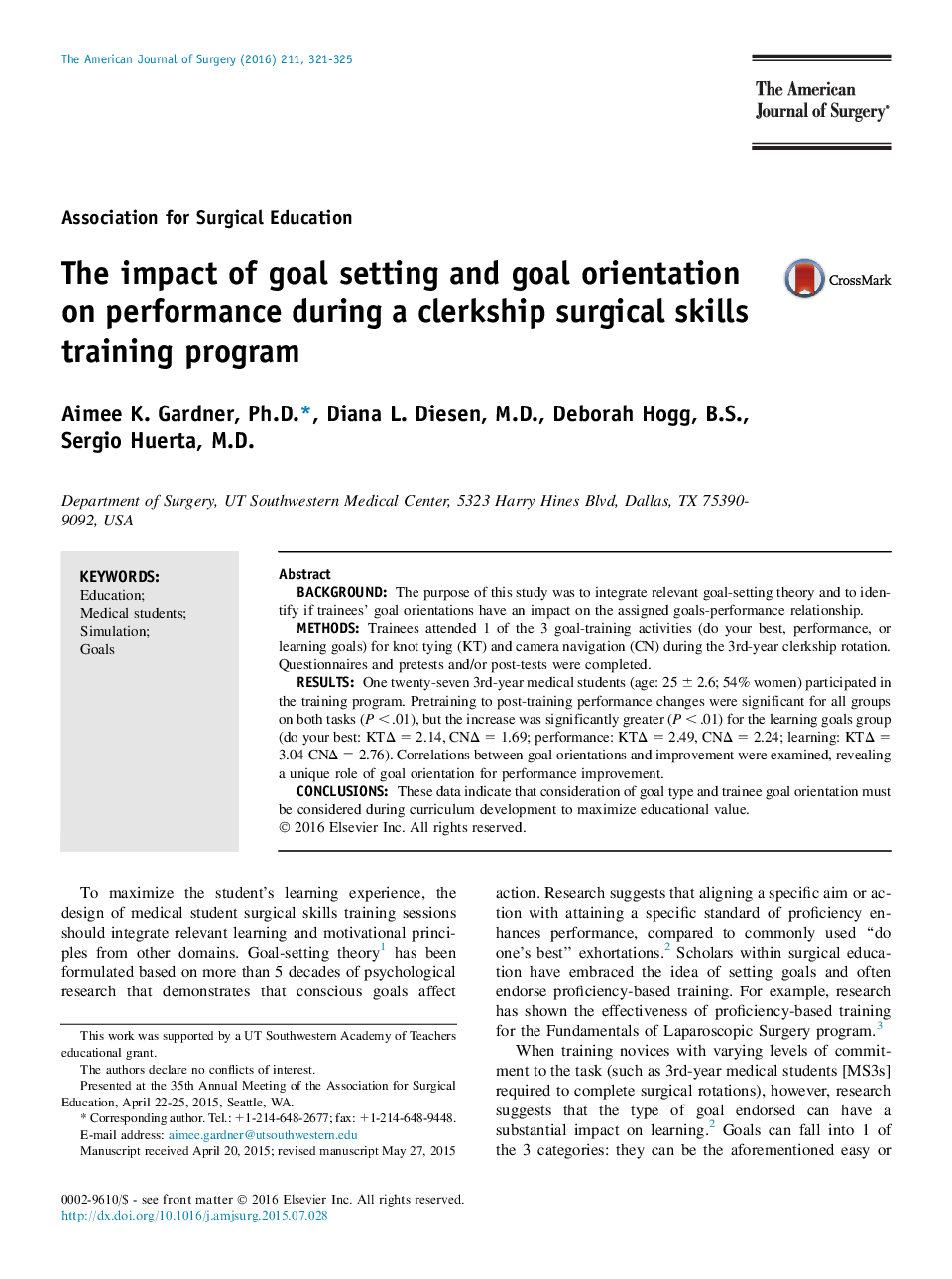| Article ID | Journal | Published Year | Pages | File Type |
|---|---|---|---|---|
| 4278145 | The American Journal of Surgery | 2016 | 5 Pages |
BackgroundThe purpose of this study was to integrate relevant goal-setting theory and to identify if trainees' goal orientations have an impact on the assigned goals-performance relationship.MethodsTrainees attended 1 of the 3 goal-training activities (do your best, performance, or learning goals) for knot tying (KT) and camera navigation (CN) during the 3rd-year clerkship rotation. Questionnaires and pretests and/or post-tests were completed.ResultsOne twenty-seven 3rd-year medical students (age: 25 ± 2.6; 54% women) participated in the training program. Pretraining to post-training performance changes were significant for all groups on both tasks (P < .01), but the increase was significantly greater (P < .01) for the learning goals group (do your best: KTΔ = 2.14, CNΔ = 1.69; performance: KTΔ = 2.49, CNΔ = 2.24; learning: KTΔ = 3.04 CNΔ = 2.76). Correlations between goal orientations and improvement were examined, revealing a unique role of goal orientation for performance improvement.ConclusionsThese data indicate that consideration of goal type and trainee goal orientation must be considered during curriculum development to maximize educational value.
